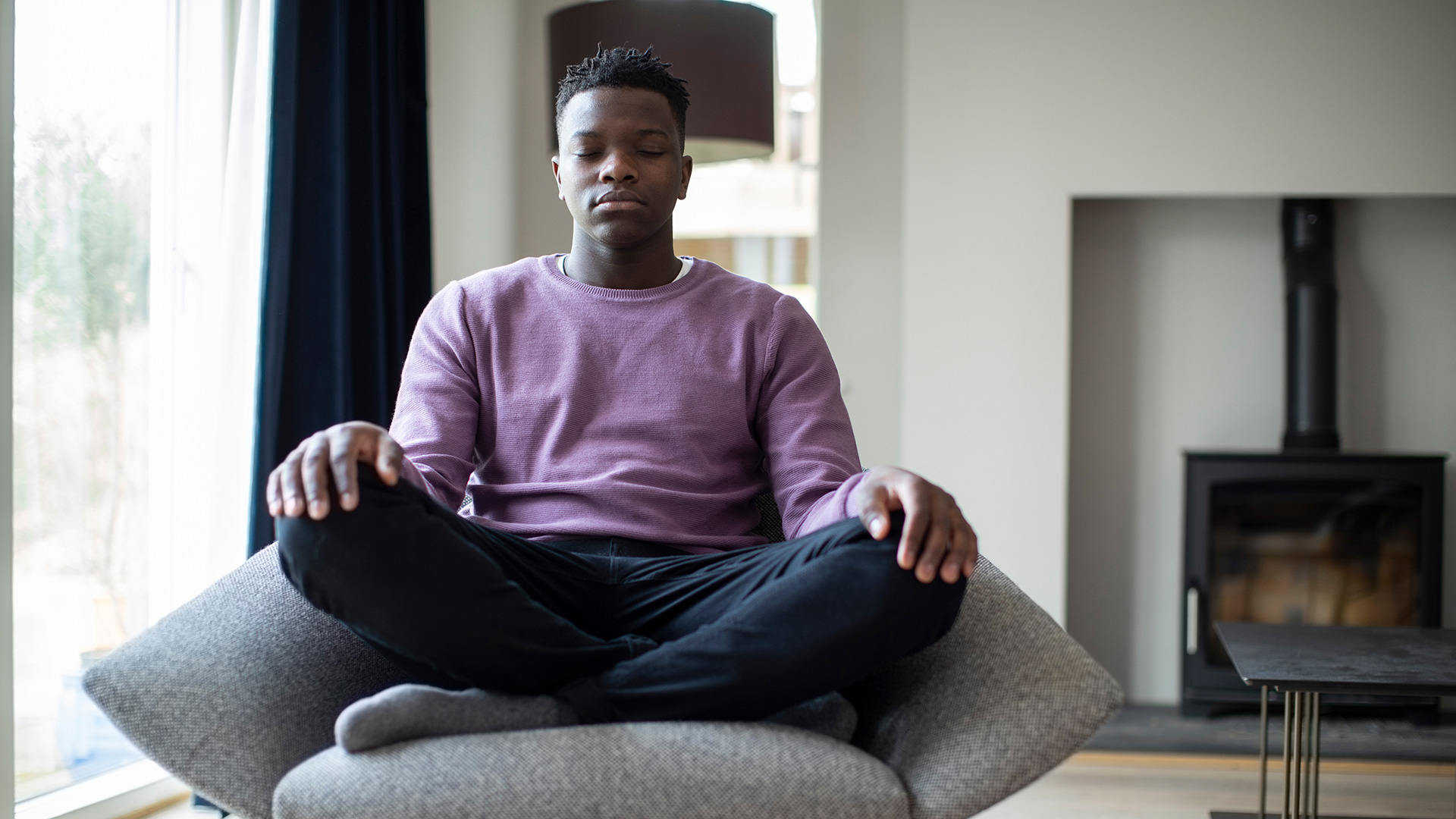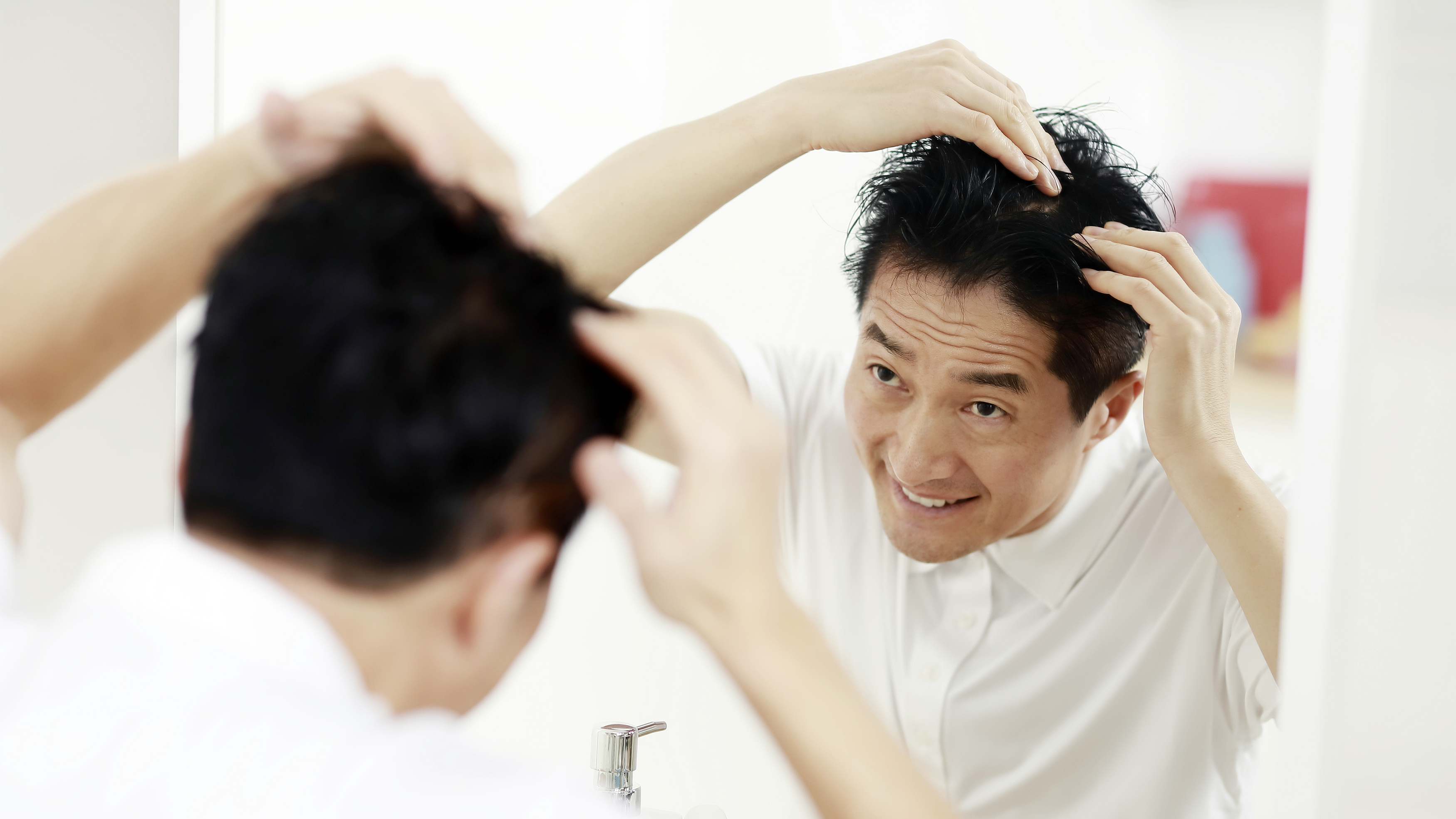
We lose up to 100 strands of hair a day. This is natural: they fall out then grow back again, as part of a hair regrowth cycle. However, at some point in their lives, most men will start to notice that they lose more than before and without the regrowth. According to the American Hair Loss Association, as many as 85% of men will have some sort of hair loss in their lifetime – hence the popularity of the best hair growth shampoos.
For many guys, balding is a big thing and can actually cause anxiety and loss of confidence, especially when lost at an early age. Take this recent study by The Harley Street Hair Clinic, which states that almost a quarter (24%) of Brits are less likely to date a guy with noticeable hair loss. It’s hardly surprising, then, that hair regrowth treatments are on the rise, with many of those suffering from hair loss doing whatever it takes to hold on to their beloved locks.
According to the NHS, "hair loss is not usually anything to be worried about, but occasionally it can be a sign of a medical condition. Some types of hair loss are permanent, like male and female pattern baldness. This type of hair loss usually runs in the family."
But can a man’s hair actually grow back? And what treatments work best? Read on to find out.
Can a man's hair grow back? What the experts say:
There are hundreds of products out there, all promising to help fight the inevitable hair loss, from shampoos and scalp tonics to the more invasive surgical treatments. But what really works? We’ve spoken to some of the UK’s best hair experts to uncover the truth.

Practice mindfulness to reduce stress
Ricky Walters, director of SALON64, says that depending on the reasons for hair loss hair can be replaced and re-grow.
“Stress, chemical damage and scalp issues are all reasons for loss of hair that would show full recovery,” he explains.
Get all the latest news, reviews, deals and buying guides on gorgeous tech, home and active products from the T3 experts
In this instance, when the loss is due to illness and/or lifestyle factors, it is always best to go to a GP to find out why and what can be done to help stimulate the growth again.
Look after your hair
To reduce the loss of hair on your head, it could be as simple as taking better care of what you already have as opposed to going through costly treatments to give you more.
“It’s always going to be easier to maintain the hair you have, than regain hair you have lost, meaning that a strong hair care routine is an important first step when caring for your hair,” explains Dr Knut Moe, Medical Director and male healthcare brand Sons.
“If you do decide your hair loss is a problem for you don’t rush into anything, research the solutions and discuss with a professional to find out what is best for your hair right now.”
Try a topical scalp treatment
Neagle Cathcart is managing director of Mane UK - a brand which started in an Harley Street clinic specialising in hair transplants and is now a hair thickening product company. He tells us that, if a man’s hair has fallen out due to male pattern baldness, the only solution for this would be a hair transplant.
“However, there are topical, aesthetic solutions which can help to disguise thinning patches,” he says.
Mane’s UK Hair Thickening Spray and Root Concealer works to do this. It uses micro-mineral technology to bond to existing hairs to give coverage in thinning areas. The spray also doesn’t weigh down the hair. Instead, it emulates hair fibres to give an overall thickness that blends with the hair.
“Hair needs the right nutrition in order to thrive,” explains Cathcart. “The body prioritises nutrients for its essential functions - such as growth, repair, respiration - and so the hair is often the last to receive vitamins, minerals and proteins needed in order for it to be strong and healthy.”
Other medical treatments for male pattern hair loss are Minoxidil (a daily scalp application) and Finasteride (a daily tablet), both of which are effective in 90% of people who take them, according to Dr Knut Moe, these treatments are also recommended by the NHS.

Eat yourself hairy
Offering advice regarding diet, Cathcart also says diet can help when it comes to helping retain your head of hair.
“The follicle thrives on protein and biotin and so eating eggs is a great way to ensure this happens,” he explains. “Vitamin E may also promote hair growth, which avocados are packed with. If lifestyle changes are made in line with a GP or doctor’s advice, it stands a fighting chance at growing back.”
Do hair transplants work?
While beauty and grooming innovations have come a long way in recent years, no solution can 100-percent reverse the effects of natural hair loss. Still, there are some more invasive treatments around that can do a pretty good job.
One of those is called Follicular unit hair transplantation or ‘FUT’, a long-lasting and natural-looking solution that recreates the natural hairline that frames your face, while not looking like you’ve slapped on a toupee.
The technique involves transplanting a patient's hair in naturally occurring groups of one to four hairs, called follicular units. These follicular units also contain sebaceous oil glands, nerves, a small muscle, and occasional fine vellus hairs, which allow the surgeon to transplant thousands of grafts in a single session, maximising the cosmetic impact of the procedure.
FUT is considered an advance over older hair transplantation procedures that used larger grafts as they often produced a somewhat unnatural look. In a properly-performed follicular unit transplant, the results will mimic the way hair grows naturally, so those who weren’t aware you used to be missing hair will be none the wiser.
For those who find going under the knife a little too extreme, there are also a range of hair regrowth shampoos available. While these won’t have any effect when it comes to male pattern baldness like a hair transplant would, they will promote natural hair regrowth for a thicker looking head of hair. You can always check out our guide to the best hair regrowth shampoos to learn more about this.
Liked this?
- Best hair clippers: cut your hair at home
- Best hair dryer: quick, frizz-free drying for all hair types

Lee Bell is a freelance journalist and copywriter specialising in all things technology, be it smart home innovation, fit-tech and grooming gadgets. From national newspapers to specialist-interest titles, Lee has written for some of the world’s most respected publications during his 15 years as a tech writer. Nowadays, he lives in Manchester, where - if he's not bashing at a keyboard - you'll probably find him doing yoga, building something out of wood or digging in the garden.
